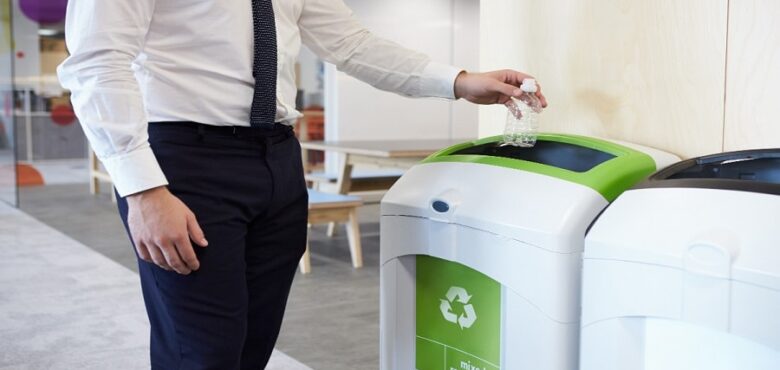Category:

- August 27, 2020
Four Recycling Risks When Businesses Go Green
Going green – you’ve got to do it. At least, that’s what most of the world’s modern business owners and entrepreneurs believe, and it’s easy to see why. Once you eliminate unnecessary wastage, your company can reduce supply chain fees and increase its budget. Plus, helping the planet is fantastic for your customer base who are very passionate about the environment.
On the face of it, something as basic as a recycling program appears to be a no-brainer. The pros outweigh the cons. However, you should never judge a book by its cover. While the benefits are varied and wide-ranging, they aren’t guaranteed. Nothing is in the business world, and anybody who thinks it not to be the case is in for a rude awakening!
You must address the potential pitfalls as they have the potential to be as powerful as the advantages. With that in mind, here are four risks you may not have considered before trying to go green.
It May Not Be Enough
Recycling is pleasant, yet it isn’t going to change the landscape. The environment is at breaking point and more needs to be done than sorting plastics from regular garbage. It doesn’t matter if you don’t see it this way because your customers will, and they are the ones who count the most.
As a result, they may be disappointed that all you’re doing is the bare minimum. To them, it appears as if you’re trying to piggyback off the movement without investing time, money, or energy. Therefore, you have to gauge your base and their morals.
Businesses who put the environment at the forefront of their message must go the extra mile to appease their customers. Otherwise, they’ll view your brand as fraudulent and untrustworthy, which are surefire signs that they’re about to leave and follow another company.
You’re Still Creating Waste
This is the big picture – corporate waste is a killer. The ultimate aim of trying to be a more eco-friendly company should be to reduce your wastage and eliminate the need to recycle. Recycling is a means to an end for now, yet that will change in the future when organizations tweak their processes thanks to advancements in technology.
Of course, this impacts your reputation. How can you be committed to going green if your waste isn’t coming down? Plus, there is an economic effect. Predictions estimate that waste expenses will skyrocket by almost 50% in the next five years. As a result, concentrating on recycling rather than eliminating your waste will cost the business a fortune.
If you combine this with a drop in your brand’s reputation, the forecast looks very bleak. That’s why you can’t only focus on recycling and must emphasize reducing waste in general.
Recycling Is a Security Risk
Data has become a big part of running a successful business in the last couple of years. Now that entrepreneurs have figured out a way to turn basic info into money-spinners, acquiring customer’s data has never been as essential. On the flip side, it also means you have a responsibility to keep it safe.
Recycling your old equipment or selling it to make money are two ways that present potential ways to leak data. Businesses that don’t invest in data destruction techniques beforehand leave the information open to hackers to steal it. You must wipe a drive or disk, overwrite the data, or reformat it to ensure that everything is secure.
By the way, those are only three examples of data management included within a recycling strategy. For total peace of mind, you could have to destroy or shred your equipment physically.
Staff Could Lack Passion
You think you have covered every base. Aside from recycling, you’re also committed to reducing waste and protecting data when you sell or destroy old equipment. You have also made it clear to your base that you’re attempting to be as eco-friendly as possible, and aren’t only jumping on the bandwagon.
Unfortunately, you haven’t swerved all the hurdles. The last one is your staff, who may be reluctant to follow the new policies. This is important as you must get them onboard if you’re going to make your processes successful. It’s counterproductive if they carry on with the same techniques.
You should make it worth their while. At the very least, it’s essential to highlight the advantages for the staff and the business. For example, appealing to your base will lead to bigger profits and employee bonuses.
Going green isn’t a walk in the park. How do you plan on getting it right?

